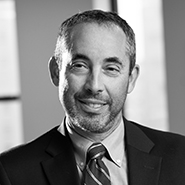Crisis emerges in Maine over safe disposal of biosolids from wastewater treatment plants
Maine wastewater treatment plants are currently facing intense challenges concerning disposal of their sewage sludge, also called “biosolids.” This is a fast-moving issue getting significant coverage in the media and substantial attention from state officials and legislators.
The crisis recently emerged into the public eye when the state-owned Juniper Ridge landfill announced several weeks ago that it would no longer accept the increasing amount of sludge it had been receiving from wastewater treatment plants around the State. In response to the announcement, treatment plants are racing to find short-term solutions. Some have resorted to measures such as utilizing on-site storage which may only provide relief for a matter of days. Others have no options.
The biosolid disposal challenges stem primarily from the State’s prohibition on the land-spreading of biosolids for fertilizer, a practice followed by many wastewater treatment plants. This prohibition was adopted by the Maine Legislature in 2022 as part of LD 1911 due to increasing public concerns related to PFAS found in waters and soils where biosolids had been spread. Maine was the first state in the nation to pass such a law. Without the ability to land-spread sludge, many wastewater treatment plants were forced to start landfilling their biosolids in Maine.
Landfills, however, do not have unlimited capacity to accept biosolids. When liquid waste is brought to a landfill, it needs to be mixed with solid “bulky” waste so that the liquid waste remains in the landfill without sloughing off or creating collapses. This “binding” process requires a sufficient quantity of solid waste to enable the landfilling of liquid waste such as sewage sludge. If there is a shortfall in bulky waste, then there is a reduced ability to accept liquid waste. That is what is purportedly taking place now at an important sludge disposal location in the state which is pointing the finger at another 2022 law -- LD 1639 -- that they contend limits their ability to landfill bulky construction debris imported into the state (a belief not universally shared by all stakeholders).
To address the looming crisis, in the short term, the Maine Department of Environmental Protection provided emergency authorization to allow the transportation of sludge to the Hawk Ridge Compost Facility in Unity, Maine. From there, the sludge is then shipped at extra cost to a landfill in New Brunswick, Canada – and potentially other locations being explored. These higher costs are in turn passed along to wastewater treatment facilities, and their customers.
While DEP’s emergency authorization provides some relief for the wastewater treatment plants, most treatment plants remain concerned that this solution is only short-term in nature. In this regard, the Maine Water Environment Association – the statewide trade association that represents wastewater treatment plants and affiliated professionals – recently asked the Legislature to give careful thought to lasting solutions to this crisis, and efforts are underway before the Maine Legislature to address the problem.
To better understand the issues and challenges, the Legislature’s Environment and Natural Resources Committee on March 8, 2023 will hold a briefing session. At the briefing, the private operator of the state-owned Juniper Ridge landfill will be asked to explain why it was recently unable to accept biosolids from wastewater treatment plants and whether other options may exist. The Committee will also hear from representatives of the Maine Department of Environmental Protection. In the meantime, some environmental advocacy groups have raised questions about the severity of the crisis and whether other, better options exist to ensure the continued ability to store biosolids in the state’s landfills.
The biosolid crisis facing Maine continues to evolve as stakeholders evaluate options and better understand the challenges. Verrill will continue to monitor the situation and provide updates as they happen. We are also here to assist our clients with legislative and legal solutions to these challenges.
Please reach out to Jim Cohen, Mat Todaro or other members of Verrill’s Environmental & Land Use group with questions regarding the status of biosolid disposal in the State.










